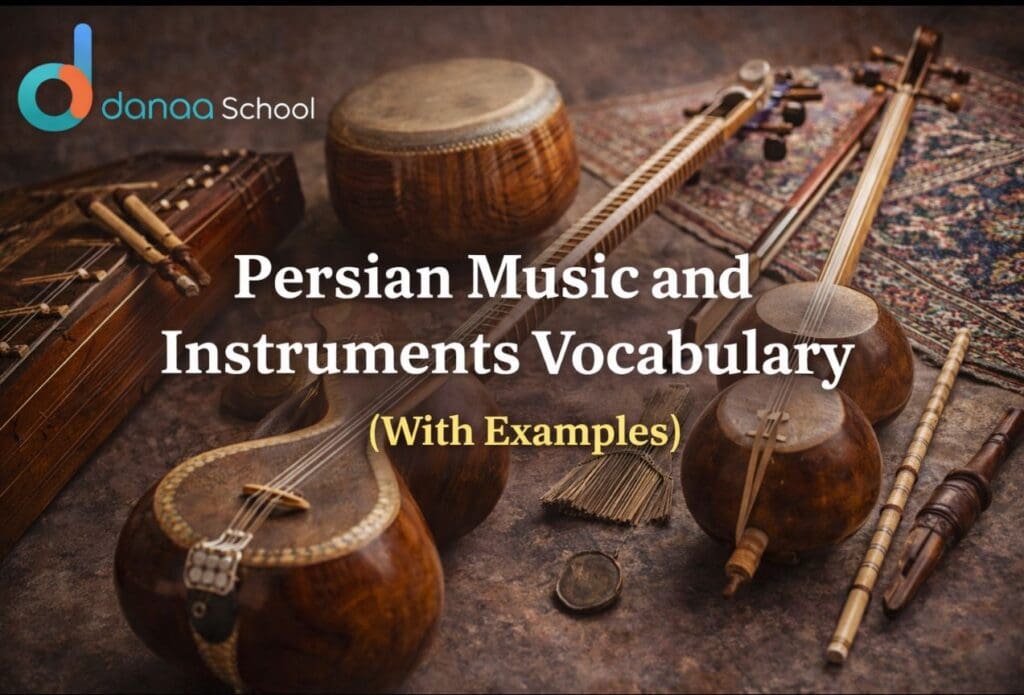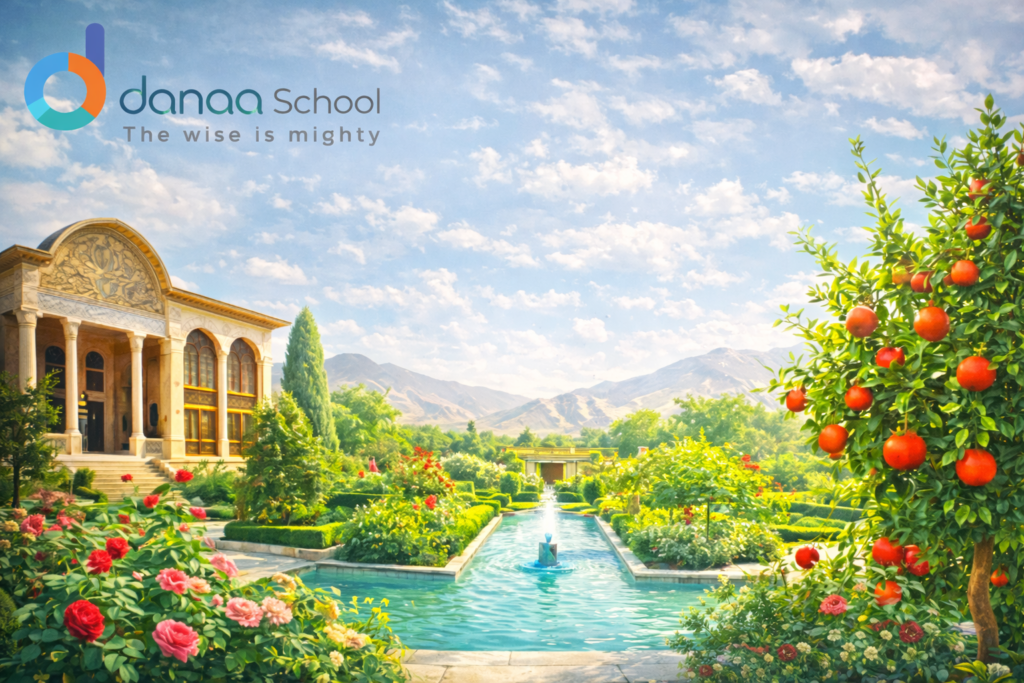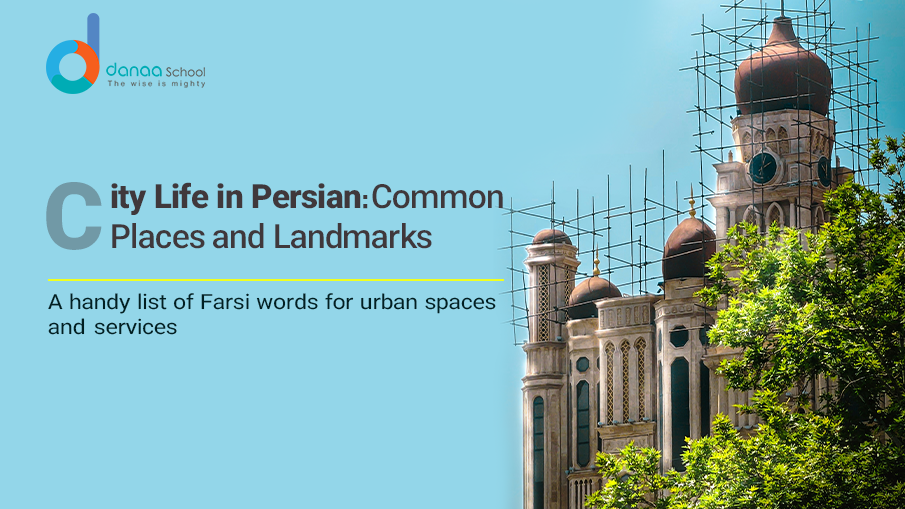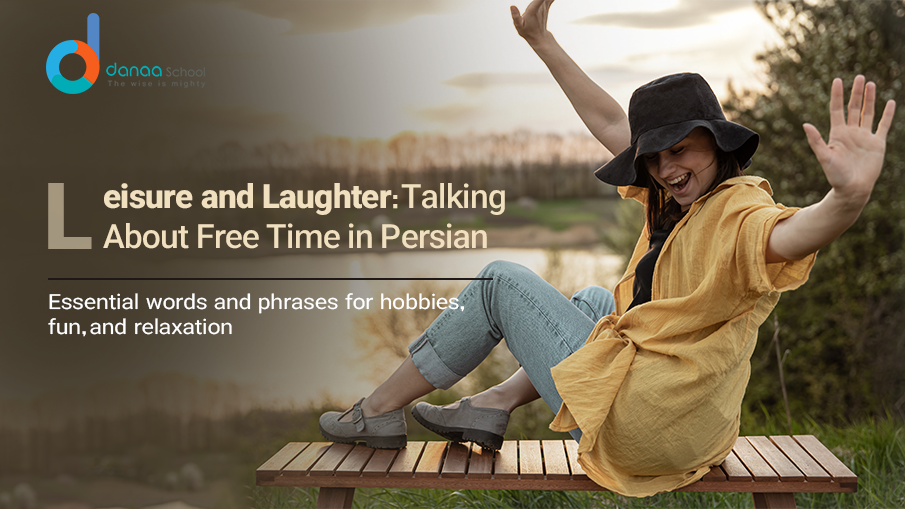Persian poetry is a treasure trove of wisdom, beauty, and timeless elegance. For centuries, poets from Iran have crafted verses that resonate with deep emotional and spiritual insights. Now, with many Farsi poems in English, this rich literary heritage is accessible to a global audience. From the mystical verses of Rumi to the poignant lines of Hafez, Persian poetry in English opens up a world of profound reflection and sublime beauty.
This blog post aims to introduce you to the enchanting world of Persian poetry. We’ll explore the works of some of the most revered Persian poets, delve into the themes and styles that define them, and highlight the significance of Persian poetry in English translations. Additionally, we’ll point you towards resources, such as Danaa School’s Persian poetry courses, to further immerse yourself in this captivating literary tradition.
Ready to start this poetic journey? Let’s dive in.
The Magic of Persian Poetry
Persian poetry, known as “Sher” in Farsi, has a storied history that dates back millennia. It flourished during the medieval period, with poets such as Ferdowsi, Rumi, Saadi, and Hafez, whose works continue to captivate readers worldwide.
Ferdowsi
Best known for his epic, “Shahnameh” (The Book of Kings), Ferdowsi’s work is a cornerstone of Persian literature. The Shahnameh recounts the history of Persia, blending myth, legend, and historical facts.
Rumi
Perhaps the most famous Persian poet internationally, Rumi’s mystical and spiritual poetry has universal appeal. His works, such as the “Masnavi,” explore themes of divine love and the human soul’s quest for connection with the divine.
Saadi
Renowned for his wisdom and eloquence, Saadi’s “Gulistan” (The Rose Garden) and “Bustan” (The Orchard) are collections of poetry and prose that reflect on morality, politics, and human nature.
Hafez
Known for his lyrical and ghazal poetry, Hafez’s verses often delve into themes of love, faith, and the fleeting nature of life. His “Divan-e-Hafez” is a staple in Persian households.
Themes and Styles
Persian poetry often intertwines themes of love, mysticism, and nature. Poets use rich imagery, metaphors, and symbolism to convey profound truths and emotions. The ghazal, a form of lyric poetry expressing the pain of loss and the beauty of love, is a prominent style in Persian poetry.
Persian Poetry in English
Translating Persian poetry into English is no small feat. It requires a deep understanding of both languages and cultures to capture the nuances and musicality of the original verses. Despite these challenges, numerous translators have succeeded in bringing the essence of Persian poetry to English-speaking audiences. Works of translators like Coleman Barks, who popularized Rumi’s poetry, have played a significant role in this cultural exchange.
Why Learn Persian Poetry?
Studying Persian poetry allows one to appreciate Iran’s rich cultural heritage. The themes and values expressed in these poems offer insights into Persian philosophy, spirituality, and way of life.
Literary Enrichment
Persian poetry enriches the literary landscape with its unique styles and profound themes, for English-speaking readers and writers, exploring Persian poetry can offer new perspectives and inspirations.
Spiritual and Personal Growth
Many find that Persian poetry speaks to the soul. These poems’ mystical and introspective nature encourages readers to reflect on their lives and spirituality.
Danaa School’s Persian Poetry Courses
To truly immerse yourself in the beauty of Persian poetry, consider enrolling in Danaa School’s Persian poetry courses. These courses are designed to provide an in-depth understanding of Persian poetry’s historical context, themes, and linguistic nuances. You’ll be able to read and analyze poems in both Persian and English, gaining a deeper appreciation for this timeless art form.
Famous Persian Poets and Their Works
Rumi’s poetry transcends cultural and temporal boundaries. His collection, “Masnavi,” is a six-book spiritual epic that delves into Sufi teachings and human spirituality. Quotes from Rumi, like “The wound is the place where the Light enters you,” have become globally recognized for their profound wisdom.
Rumi’s poetry, deeply rooted in Sufi mysticism, explores the relationship between the self and the divine. His verses are imbued with a sense of longing and transcendence, often employing metaphors that compare the spiritual journey to a dance or a quest for a beloved. His work has inspired countless readers to seek a deeper understanding of themselves and the world around them.
Hafez: The Poet of Love
Hafez’s “Divan” is a collection of his ghazals, often quoted in both casual and formal settings in Iran. His poetry’s intricate layers of meaning make it a subject of study and admiration for scholars and enthusiasts alike.
Hafez’s poetry often intertwines love, spirituality, and existential contemplation themes. His ghazals are celebrated for their lyrical beauty and profound philosophical insights. Hafez’s work is so revered in Persian culture that his “Divan” is often used for divination, where readers open the book to a random page to seek guidance or inspiration.
Saadi: The Moral Philosopher
Saadi’s “Gulistan” and “Bustan” are rich with anecdotes and reflections on morality, governance, and human nature. His famous lines, “Human beings are members of a whole, in the creation of one essence and soul,” reflect his deep humanistic values.
Saadi’s works combine prose and poetry to convey moral and ethical lessons. The “Gulistan” is particularly known for its storytelling style, blending humor and wisdom to address complex social and ethical issues. Saadi’s poetry remains relevant today, offering timeless reflections on the human condition.
Ferdowsi: The Epic Poet
Ferdowsi’s “Shahnameh” is not just an epic poem but a cultural artifact that preserves the history and mythology of Persia. Its grandeur and depth make it a monumental achievement in world literature.
The “Shahnameh” is a vast narrative that chronicles Persia’s legendary and historical past, from the creation of the world to the Islamic conquest. Ferdowsi’s dedication to preserving Persian culture and language through this monumental work has earned him a lasting legacy as one of the greatest poets in history.
The Challenges of Translating Persian Poetry
Translating Persian poetry into English is a complex and nuanced endeavor. The richness of the Persian language, with its intricate metaphors, layered meanings, and musicality, presents significant challenges for translators. However, the efforts to translate these works are crucial in making Persian poetry accessible to a global audience.
Translators like Coleman Barks have significantly contributed by popularizing Persian poets such as Rumi. While some purists argue that translations can never fully capture the essence of the original, these translated works still offer invaluable insights and beauty to those who might not otherwise have access to them.
The Role of Persian Poetry in Modern Times
In contemporary Iran, poetry remains a vibrant and integral part of cultural and social life. Persian poetry is celebrated through various cultural events, festivals, and academic studies. The themes explored in classical Persian poetry resonate with modern readers, addressing universal human experiences such as love, loss, and the quest for meaning.
Moreover, translating Persian poetry into English and other languages has facilitated a cross-cultural exchange that enriches global literary traditions. Readers worldwide can now appreciate the depth and beauty of Persian poetry, fostering greater understanding and appreciation of Iranian culture and history.
FAQs
Who is the most famous Persian poet?
Rumi is arguably the most famous Persian poet. He is known for his mystical and spiritual verses, which have gained immense popularity worldwide.
What is the most famous Persian literature?
The “Shahnameh” by Ferdowsi is one of the most famous works of Persian literature. It details Persia’s mythological and historical past.
What is a poem called in Farsi?
In Farsi, a poem is called “Sher.”
Is poetry popular in Iran?
Yes, poetry is immensely popular in Iran. Its rich tradition is celebrated in both formal and informal settings.
Who is the father of Persian poetry?
Rudaki is often referred to as the father of Persian poetry, as he is one of the earliest and most influential Persian poets.
Who is the national poet of Iran?
Hafez is widely regarded as Iran’s national poet and is celebrated for his profound and lyrical ghazals.
Conclusion
Persian poetry is a gateway to a world of profound beauty, wisdom, and cultural richness. Whether you’re a literary enthusiast, a student of culture, or someone seeking spiritual insights, Persian poetry in English offers a wealth of knowledge and inspiration. You can gain a deeper appreciation by exploring the works of iconic poets like Rumi, Hafez, Saadi, and Ferdowsi.










